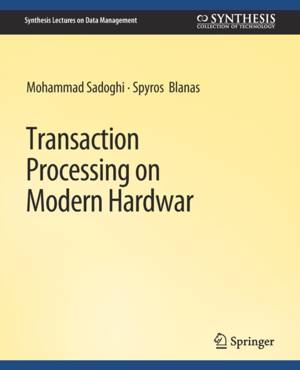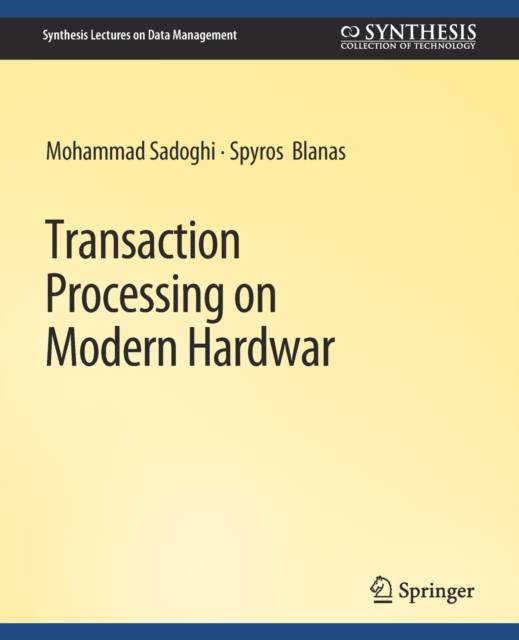
- Retrait gratuit dans votre magasin Club
- 7.000.000 titres dans notre catalogue
- Payer en toute sécurité
- Toujours un magasin près de chez vous
- Retrait gratuit dans votre magasin Club
- 7.000.0000 titres dans notre catalogue
- Payer en toute sécurité
- Toujours un magasin près de chez vous
Description
The last decade has brought groundbreaking developments in transaction processing. This resurgence of an otherwise mature research area has spurred from the diminishing cost per GB of DRAM that allows many transaction processing workloads to be entirely memory-resident. This shift demanded a pause to fundamentally rethink the architecture of database systems. The data storage lexicon has now expanded beyond spinning disks and RAID levels to include the cache hierarchy, memory consistency models, cache coherence and write invalidation costs, NUMA regions, and coherence domains. New memory technologies promise fast non-volatile storage and expose unchartered trade-offs for transactional durability, such as exploiting byte-addressable hot and cold storage through persistent programming that promotes simpler recovery protocols. In the meantime, the plateauing single-threaded processor performance has brought massive concurrency within a single node, first in the form of multi-core, andnow with many-core and heterogeneous processors.
The exciting possibility to reshape the storage, transaction, logging, and recovery layers of next-generation systems on emerging hardware have prompted the database research community to vigorously debate the trade-offs between specialized kernels that narrowly focus on transaction processing performance vs. designs that permit transactionally consistent data accesses from decision support and analytical workloads. In this book, we aim to classify and distill the new body of work on transaction processing that has surfaced in the last decade to navigate researchers and practitioners through this intricate research subject.
Spécifications
Parties prenantes
- Auteur(s) :
- Editeur:
Contenu
- Nombre de pages :
- 122
- Langue:
- Anglais
- Collection :
Caractéristiques
- EAN:
- 9783031007422
- Date de parution :
- 08-03-19
- Format:
- Livre broché
- Format numérique:
- Trade paperback (VS)
- Dimensions :
- 190 mm x 235 mm
- Poids :
- 254 g

Les avis
Nous publions uniquement les avis qui respectent les conditions requises. Consultez nos conditions pour les avis.






